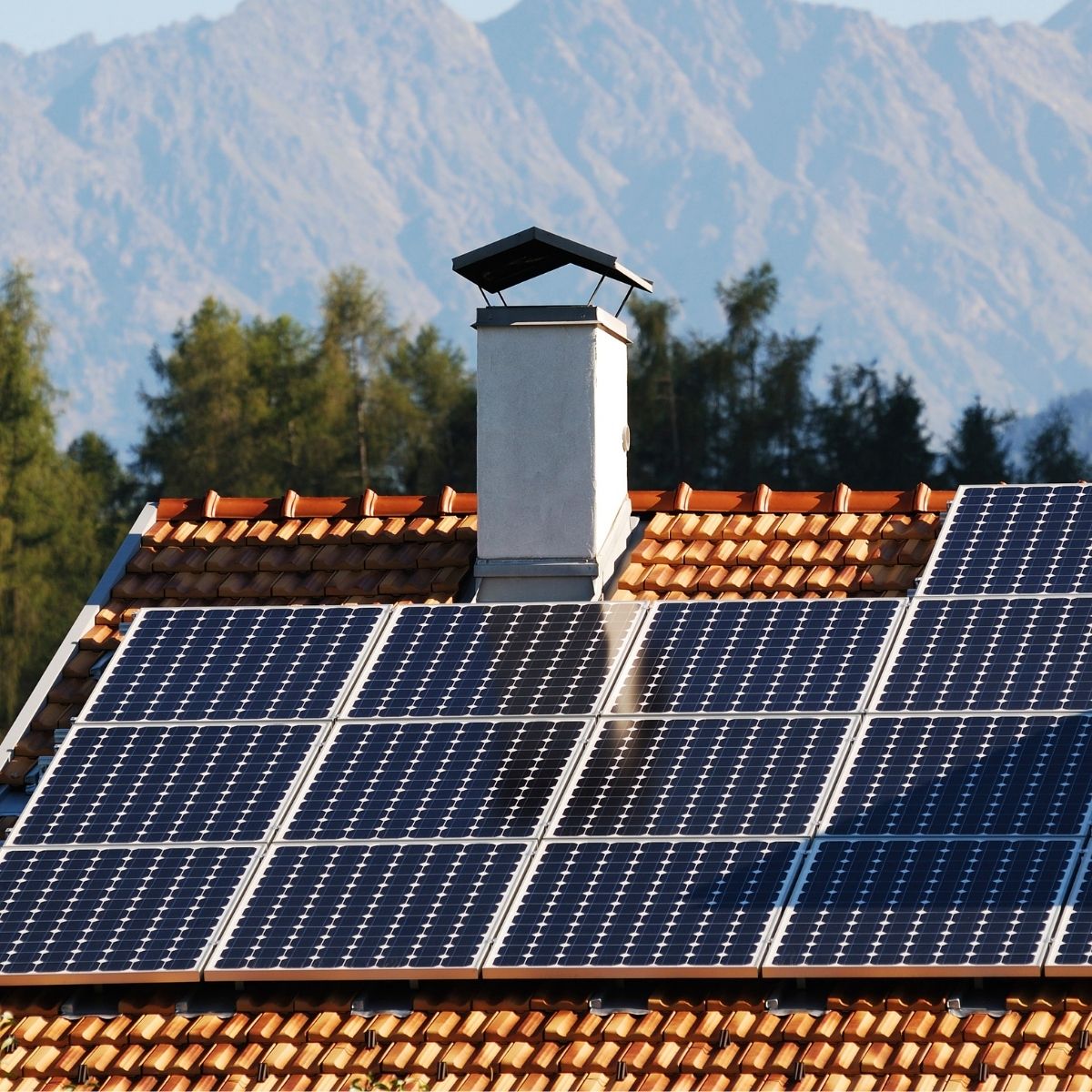Disclosure: This post may contain affiliate links. This means that at no cost to you, we may earn a small commission for qualifying purchases.
Last Updated on April 7, 2024
Those who haven’t taken advantage of solar panels on their home roof probably don’t realize—and some who do, also don’t realize—that when the power goes out, your solar panels are usually about as useful as a paperweight with no paper.
There are several things you can do to make your solar panels more viable during a power outage, such as keeping a backup generator, using a solar generator, installing solar batteries, or using a specific kind of inverter.
Normally, when your solar panels are installed, everything is tied into the power grid in your surrounding area. That means when the power goes out, your solar panels are cut off as well. Of course, if the power goes out in the event of a storm, it’s not as if they’re drawing energy anyway.

Contents
How Solar Panels Typically Work
Since solar panels are tied into the electric grid, they’re cut off automatically when the power goes out.
The reason behind this is a safety feature. If they weren’t cut off, the residual power that they are constantly collecting can be redirected into the power grid, electrocuting the workers who come out to fix it.
The last thing you want is to have your solar panels feeding electricity in the power lines that are supposed to be shut off. Utility workers are in danger of being electrocuted if they aren’t automatically shut off.
So what’s the point of having solar panels if they are useless when the power goes out? It’s a common misconception that solar panels will just take over in the event of a power outage. That doesn’t mean that you can’t put together something that will flip that process on its head.
How to Use Solar Panels When the Power Goes Out
There are four ways to go about setting up a solar panel system that continues to benefit your home in the event of a power outage, whether it’s some sort of rolling blackout or the product of a lightning storm.
- Keep and maintain a backup generator
- Keep and maintain a solar generator
- Use solar batteries
- Install a secure power supply inverter
The backup generator actually has very little to do with the solar panels, since it will most likely run on gasoline or propane. It may seem to be counterintuitive to use fossil fuels when you are trying to push forward into the spectrum of green energy.
However, it’s really easy to discover the convenience of a backup generator when everything in your refrigerator is starting to reach room temperature. Besides, the point is not to use your gas generator unless you absolutely have to. Keep it stored and keep it ready.
If you’re completely against the idea of using a gasoline or propane generator, you can stick with green energy and go with a battery backup generator that is charged by your solar panels, such as the Goal Zero Yeti 1500x Lithium.
There are more powerful options, but you shouldn’t expect a solar generator to power your whole home. What it will do is keep the things in your refrigerator from going bad, or just provide you the essentials that you need to get through the outage.
If you want something to power your whole home in the event of a power outage, you want the Tesla Powerwall, which is efficient enough to do it, works with your solar panels and will cost you a kidney, sold on the black market to own.
If the Tesla Powerwall is just too much, consider installing a solar battery system. Our advice would be to stick with lithium batteries, as they are far more efficient, last longer, and hold more charge.
Lastly, you can go with a secure power supply inverter. Like the generators, this will keep the vital things running in your home but certainly won’t power your entire home while you’re waiting on the power to come back on.
Enphase and SMA are two companies that design these inverters that negate your need to tie your solar system into the local power grid. For instance, the SMA Sunny Boy has a switch that you can flip whenever the power goes out.
When you flip the switch, it cuts your solar panels off from the power grid and enables you to direct that energy into your home. It’s not as useful if the power outage is due to a storm, especially if the clouds have been heavy all day or its night time when it happens.
See Also: DIY Solar Generator
All Things Considered
If you’re looking into installing a home solar system or have moved into a house that already has one, consider the above, secondary options so that you’re never caught with your pants down if the power goes off.
These are great solutions that will keep your vital systems running in the event of an outage. Unless, of course, you can afford a Tesla Powerwall. If that’s the case, you’re as good as gold in a power outage.